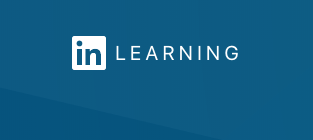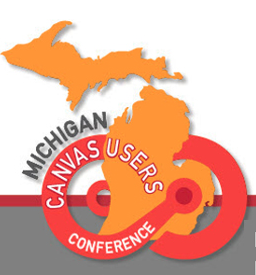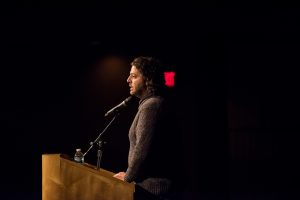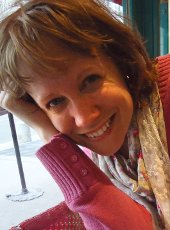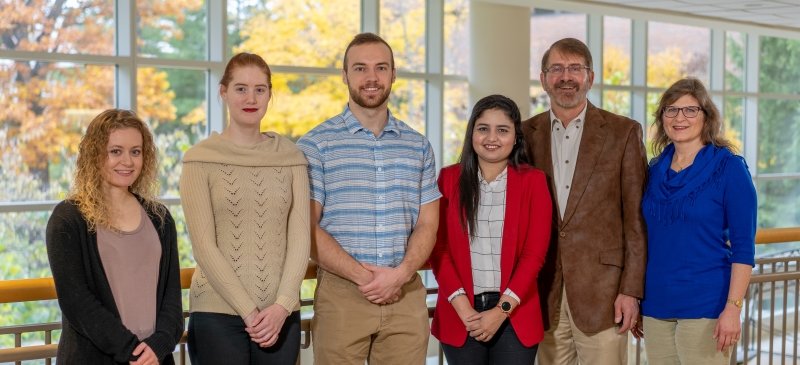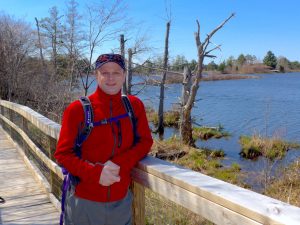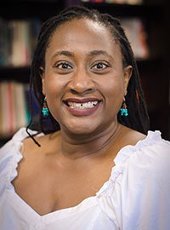
Our final Deans’ Teaching Showcase member, selected by Dean David Hemmer from the College of Sciences and Arts, is Kette Thomas, associate professor in Humanities. Dean Hemmer provided an extraordinary nomination letter written by Interim Humanities Chair Patricia Sotirin, most of which is preserved here intact.
Thomas regularly teaches large lecture classes (~50-75 seats) including HU3502 “Mythology: World Myths” and HU2324 “Introduction to Film: History of Cinema” (a General Education Core course); she helped develop the undergraduate English BA degree program in Humanities; and she has contributed to curricula and assessment at the University level.
Sotirin sees Thomas as a truly engaging teacher whose deep passion for her subjects and commitment to interactive teaching is evident in all her courses including her large lecture classes. Indeed, in a large lecture setting, one might assume that collective conversations about non-Western mythological themes or cinematic German Expressionism would not happen. Yet Thomas nurtures such interactions as the heart of her humanistic teaching approach. She invites her students to collaborate in “thinking out loud” with her by modeling what it means to risk expressing ideas and to take differing perspectives seriously. She shows students how becoming intellectually vulnerable can be empowering and she creates safe conversational and writing environments for them to do the same. This approach to teaching with vulnerability characterizes even the large online versions of these courses. Thomas has put online tools to work by recording brief video lectures that can be reconfigured within Modules to provide more dynamic and responsive adaptations to the needs and interests of the particular students and she makes use of the Discussion Boards and Zoom office hours.
Like all teachers at Tech, Thomas transitioned her large lecture Mythology course to an online version during Spring Break. Her approach to teaching with vulnerability and empowering student voices has resonated with her students. As one student volunteered, “I’ve come to really look forward to hearing you in [online] lectures; your enthusiasm is matched with a desire to be precise, you have a dynamic personality, and your drive to understand humanity is admirable.” Another student responded to a video Thomas published to the class acknowledging the difficulties they face in this moment, emailing, “I’ve been catching up on the lectures and I saw the ‘A note for today’ video and I just wanted to tell you that these times will pass and we’ll move on to a brighter day, I was just really touched by the video and it helped my anxiety go down a little.”
“…innovative, passionate, and engaging teacher committed to empowering students through intellectual vulnerability, collective conversation, and critical thinking.”
A third student wrote, “I wanted to reach out after watching your video on Canvas yesterday. Thank you for the encouraging words during this difficult time especially when it seems like there are not any right answers. . . . You have really shown me a way to look at things differently in the world of myth and in other ways beyond.” As we struggle to support our students in the current climate of uncertainty and disruption, Thomas’s empathy, responsiveness, and willingness to express her own vulnerability offer a model of teaching that is not only about quality instruction but also about connecting with students’ lives in ways that can both reassure and inspire them.
The list of courses that Thomas teaches evidences her commitment to a pedagogy of diversity: “Literature Across Borders”; “Topics in Diversity”; “Cultural Diversity in American Literature”; “Rhetoric of Alterity/Difference” (graduate seminar). Her course, HU3400 “Topics in Diversity: Freaks,” illustrates her innovative pedagogical strategies for engaging students with issues of diversity. Given that diversity often inspires defensiveness, Thomas draws students into this topic by looking at embodied difference through carnivalesque figures so that students can deconstruct the dynamics of marginalization and otherness. Eventually, the course turns to the ways similar criteria and ways of looking and naming can marginalize more familiar embodied differences (gender, race, sexuality). The approach empowers students to find their own preconceptions and habits of mind interesting without becoming defensive and encourages them to critically “think out loud” about socially prevalent processes of categorization and marginalization. Teaching students to be vulnerable about their experiences with and defensiveness about diversity is an example of teaching with courage as well as vulnerability.
At the program level, Thomas participated with other humanities faculty to develop the undergraduate English major. The program is a unique response to the role of writing and literature on a STEM-dominant campus. The program also mounts outreach events that bring literature to the campus community including an open-mic reader’s café and a speaker series coordinated with the core literature courses. Thomas will be program Director in 2020-21 and her egalitarian, dialogic approach to leadership is highly valued by her colleagues. At the university level, Thomas serves on the General Education Goal 8 Assessment Committee addressing Social Responsibility and Ethical Reasoning. She also participated in the Michigan Pathways curriculum review for English programs around the state to coordinate a statewide transfer protocol for core English courses.
Thomas’s extraordinary work in all areas highlighted by the showcase motivated Hemmer to summarize his selection by saying, “I am so impressed how quickly and effectively Kette has transformed her very successful classroom style into an online setting under very difficult circumstances. Hearing about Kette’s passion in the classroom and her wide selection of fascinating courses makes me want to sign up for a class from her.”
Thomas will be recognized at an end-of-term event with other showcase members, and is also a candidate for the CTL Instructional Award Series (to be determined this summer) recognizing introductory or large-class teaching, innovative or outside the classroom teaching methods, or work in curriculum and assessment.

